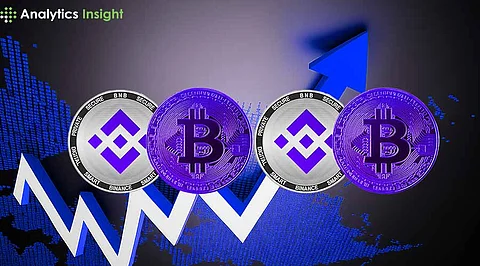

The Canadian YouTube alternative Rumble unveiled its wallet service which incorporates support for the USDT stablecoin developed by Tether. The Rumble Wallet has been created to help content creators generate revenue from their platforms. According to Rumble CEO Chris Pavlovski the new wallet would bring superior earnings potential than traditional advertising models provide.
Paolo Ardoino who leads Tether announced his endorsement of the project describing it as "a wallet for the people." A major investment from Tether allowed Rumble to receive $775 million in late 2024. Ardoino expressed his agreement with Rumble's values when he emphasized its dedication to speech freedom and financial independence.
The wallet launch by Rumble emerges during an escalating investor interest in crypto investments. Tether operates as a major influence across various industries, acquiring Juventus FC and progressing towards establishing investments in South American agricultural businesses. Meanwhile, early in 2025, Rumble added Bitcoin to its financial strategy by acquiring cryptocurrency worth $17 million to build its financial portfolio.
The recent Google Play crackdown on unlicensed crypto platforms now restricts 17 overseas exchange services to users in South Korea. The crypto exchanges operate outside of South Korean regulatory requirements as specified by the Financial Services Commission (FSC) and the Financial Intelligence Unit (FIU).
The restrictions, which took effect on March 26, prevent users from downloading or updating apps associated with these exchanges. The FSC had previously announced that these platforms were operating without proper registration under South Korea’s Specified Financial Information Act, which mandates virtual asset service providers to report their operations to local authorities.
The affected exchanges consist of major platforms known as KuCoin, MEXC, Phemex, and BitMart. Local consumer protection and anti-money laundering efforts drive the Korean authorities to restrict unregistered exchanges within their borders. The FSC also partners with Apple Korea and other local regulators to push for an extension of platform restrictions in the App Store which reduces local access to these platforms.
The launch of Pectra upgrade brings unexpected challenges to Ethereum developers during their upgrade preparations. Testnet environments created numerous obstacles which pushed the March-targeted upgrade to successive delays. The deployment of Pectra upgrade to Holesky testnet occurred late in February before developers detected errors that blocked successful finalization.
Subsequent testing on the Sepolia testnet also encountered setbacks. An unknown attacker exploited an edge case that resulted in the mining of empty blocks, further delaying progress. In response to these challenges, Ethereum’s core developers launched a new testnet called “Hoodi” on March 17. The Pectra upgrade is set to be tested on Hoodi starting March 26, with the mainnet launch possibly occurring as early as April 25.
The development community of Ethereum continues its commitment toward moving the network forward despite all obstacles. According to Nixo Rokish of the Ethereum Foundation developers face exhaustion with a particular emphasis on those working on the consensus layer. The Pectra upgrade success remains the team's priority even though new challenges have emerged in the testnets as they strive to resolve these problems for optimized network scalability and enhanced performance.
